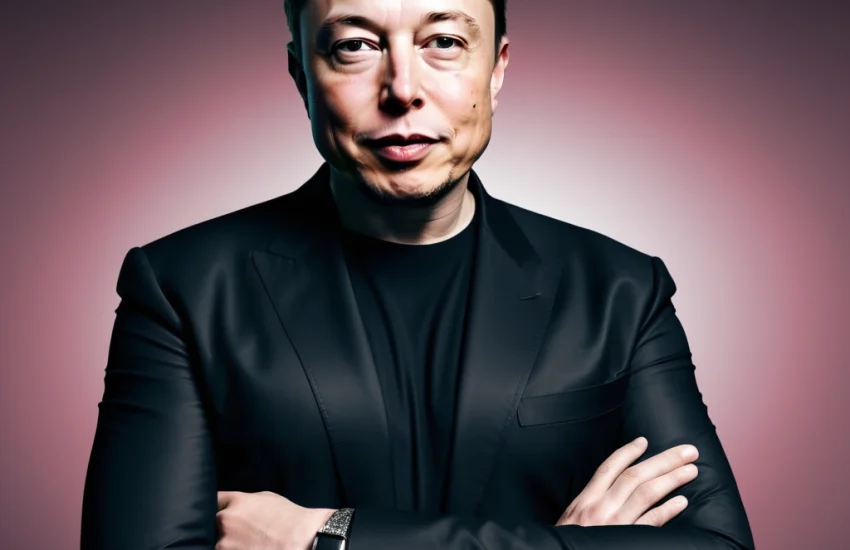Elon Musk, the enigmatic entrepreneur behind Tesla, SpaceX, and now X (formerly Twitter), has become as famous for his controversial statements as for his business ventures. His unfiltered communication style, particularly on social media, has generated significant public debate and occasional market turbulence.
“The coronavirus panic is dumb.” This early 2020 statement about the COVID-19 pandemic sparked intense backlash. As the global health crisis unfolded, Musk’s dismissive attitude toward public health measures and his opposition to lockdowns generated significant controversy, particularly when he reopened Tesla’s Fremont factory despite local health restrictions.
“We will coup whoever we want! Deal with it.” This tweet, posted in response to accusations about U.S. involvement in Bolivia’s political upheaval, created international controversy. Though Musk later claimed it was a joke, the statement raised serious questions about corporate influence in global politics, particularly regarding access to lithium resources for Tesla’s batteries.
“I am selling all my physical possessions. Will own no house.” This dramatic declaration, followed by actual property sales, sparked debates about wealth, materialism, and authenticity in leadership. Some viewed it as a genuine philosophical stance, while others saw it as a publicity stunt or tax strategy.
“Funding secured.” Perhaps one of his most costly statements, this 2018 tweet about taking Tesla private at $420 per share led to SEC investigations and millions in fines. The controversy highlighted the impact of social media statements on financial markets and corporate governance.
“Twitter is the de facto public town square for digital communication.” This statement, made before his acquisition of Twitter, became increasingly controversial as he implemented significant changes to the platform’s content moderation policies and verification system after taking control.
“The woke mind virus will destroy civilization.” This provocative statement about progressive politics and social justice movements generated intense debate about cultural change, free speech, and social progress. Critics argued it oversimplified complex social issues while supporters saw it as a defense of traditional values.
“Pronouns suck.” This brief but controversial tweet about gender identity sparked significant backlash from LGBTQ+ advocates and allies. The statement highlighted ongoing tensions between traditional and progressive views on gender expression.
“The saying ‘stay woke’ is now used as a way to shame others for not being radical enough.” His criticism of progressive activism and “wokeness” has consistently generated controversy, particularly given his platform’s influence on public discourse.
“I’m not sure about good of Twitter acquisition, but I do know that organized activist groups are trying to destroy free speech in America.” This statement during his Twitter acquisition reflected his confrontational approach to critics and sparked debates about the nature of free speech and content moderation.
“You can either be a victim or be successful, but you can’t be both.” This perspective on success and victimhood generated controversy for its apparent dismissal of systemic barriers and genuine grievances. Critics argued it oversimplified complex social and economic challenges.
“The future of humanity is fundamentally going to bifurcate along one of two directions: either we’re going to become a multiplanetary species and a spacefaring civilization, or we’re going to be stuck on one planet until some eventual extinction event.” While not immediately controversial, this statement about human destiny has been criticized for prioritizing space exploration over addressing immediate Earth-bound challenges.
“Population collapse due to low birth rates is a much bigger risk to civilization than global warming.” His views on population demographics have generated controversy, particularly when contrasted with environmental concerns. Critics argue this perspective downplays critical climate issues.
“Given that Twitter serves as the de facto public town square, failing to adhere to free speech principles fundamentally undermines democracy.” This pre-acquisition statement became increasingly controversial as his definition of free speech and its implementation at Twitter sparked intense debate.
“The media is trying to attack me for having a side gig when my main job is to build rockets and save humanity.” His confrontational relationship with the media has often generated controversy, particularly when he accuses journalists of bias or unfair coverage.
“If you’re not concerned about AI safety, you should be. Vastly more risk than North Korea.” His dramatic warnings about artificial intelligence have sparked debate within the tech community and beyond, with some experts arguing his statements oversimplify complex technological challenges.
“ESG is a scam. It has been weaponized by phony social justice warriors.” His criticism of environmental, social, and governance criteria has generated controversy, particularly given Tesla’s position in the sustainable energy market.
“Public support is important to us, but cars are privately owned.” This statement regarding Tesla’s relationship with China sparked debate about business ethics and international relations, particularly concerning data privacy and government control.
These controversial statements reflect Musk’s unique position as both a successful entrepreneur and a polarizing public figure. His willingness to challenge conventional wisdom and express unconventional views has made him both admired and criticized.
The impact of his statements often extends beyond mere controversy to affect financial markets, public policy discussions, and technological development. His position as one of the world’s wealthiest individuals and his control of significant technology platforms amplify the effect of his words.
Critics argue that his controversial statements demonstrate a lack of responsibility given his influence, while supporters see them as refreshing honesty in a world of careful corporate communication. This tension between unfiltered expression and leadership responsibility continues to define public reaction to his statements.
The broader implications of these controversies extend to questions about the role of business leaders in public discourse, the responsibility that comes with significant public influence, and the changing nature of corporate communication in the social media age.
Understanding these controversial statements requires considering both their immediate context and their broader implications for business, technology, and society. Whether viewed as strategic communication or unfiltered opinion, these quotes have significantly influenced contemporary public discourse.
